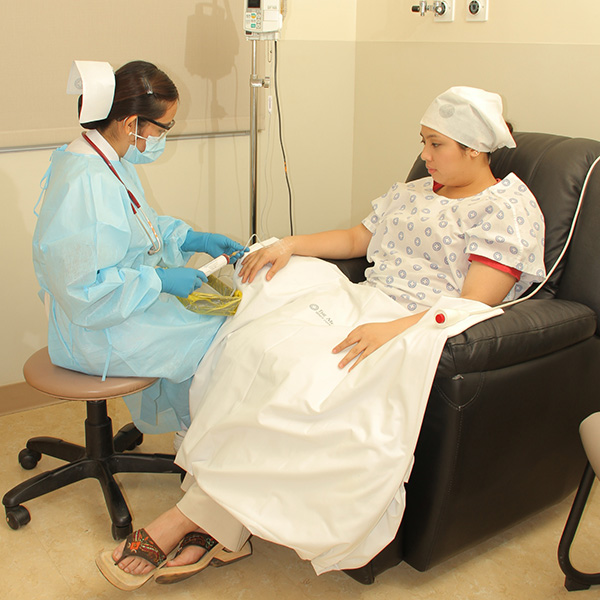What is Pancreatic Cancer?
Pancreatic cancer is a disease that affects the pancreas, an organ located near the stomach that produces hormones and enzymes important for digestion. This type of cancer occurs when abnormal cells grow and divide uncontrollably, forming a tumor in the pancreas. Unfortunately, pancreatic cancer often goes undetected until it has spread to other parts of the body, making it one of the deadliest forms of cancer.
Services
- Surgery to remove the tumor
- Chemotherapy
- Radiotherapy
- Stenting
- Decompression
FAQs
What are the Causes of Pancreatic Cancer?
The exact causes of pancreatic cancer are not entirely clear, but several contributing factors can increase your risk of developing this cancer. These factors include age, tobacco use, obesity, a family history of pancreatic cancer, chronic inflammation of the pancreas, and exposure to certain chemicals and toxins.
What are the Common Symptoms of Pancreatic Cancer?
Pancreatic cancer is one of the deadliest forms of cancer, with a high mortality rate due to a lack of detection until later stages. Knowing the common symptoms of this disease is crucial to receiving treatment as early as possible. Symptoms of pancreatic cancer can include abdominal or back pain, jaundice, unexplained weight loss, loss of appetite, fatigue, and even depression. It's important to note that these symptoms can also be associated with other illnesses, but if they persist for more than a few weeks, it's important to speak with a healthcare professional or get tested at a specialized clinic.
How is Pancreatic Cancer in the Philippines Detected?
Some of the most common methods of detection include ultrasound scans, computed tomography (CT) scans, magnetic resonance imaging (MRI), and endoscopic ultrasounds. Biopsies may also be conducted to confirm a diagnosis of cancer cells or masses are identified during one of these tests.
Who is at Risk for Pancreatic Cancer?
Pancreatic cancer can unfortunately affect anyone, but there are certain factors that may increase a person's risk. Those over the age of 60, who smoke cigarettes, have a family history of pancreatic cancer, are obese, or have diabetes are all at higher risk. Additionally, certain genetic syndromes, such as Lynch syndrome and hereditary pancreatitis, can increase a person's risk. However, it's important to remember that not everyone with these risk factors will develop pancreatic cancer, and conversely, some without these risk factors may develop the disease.
